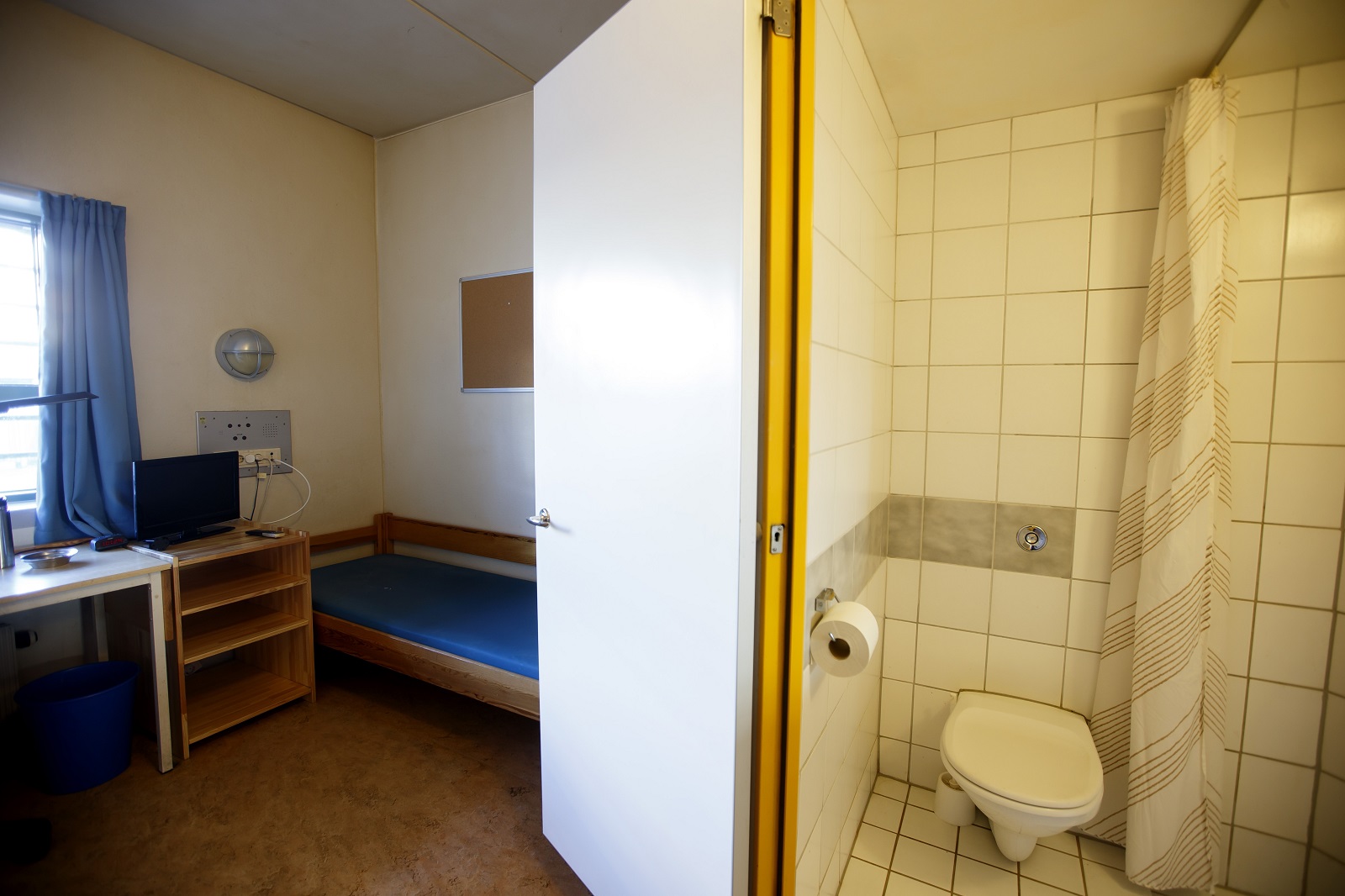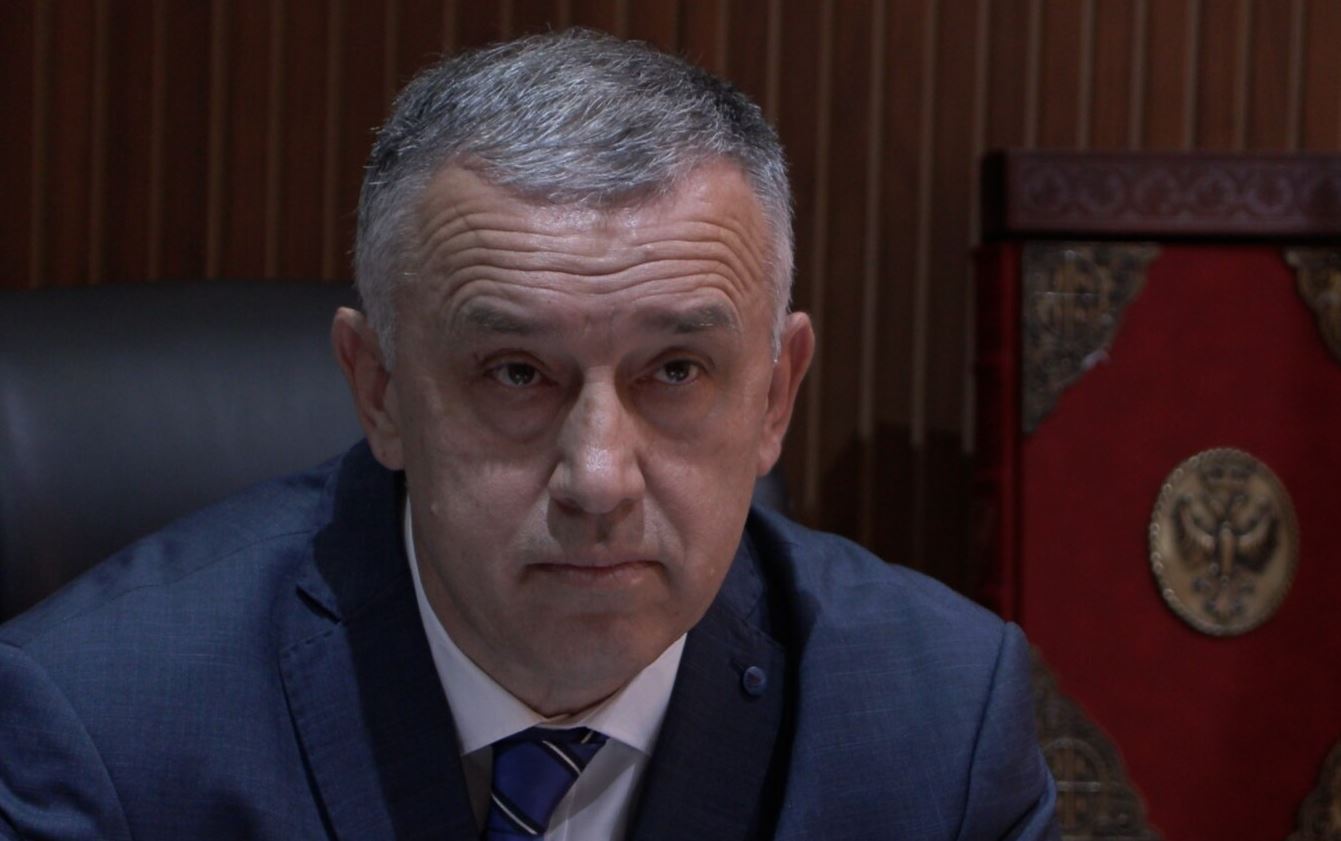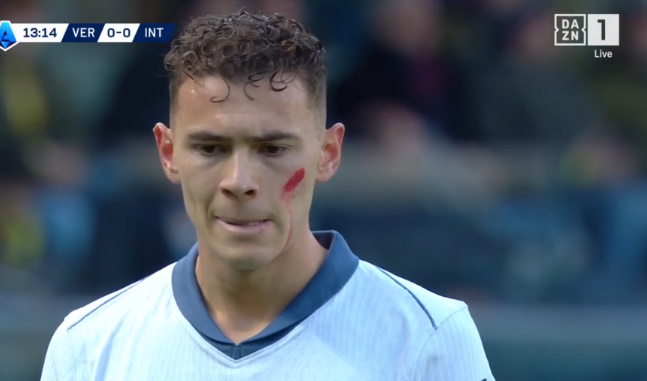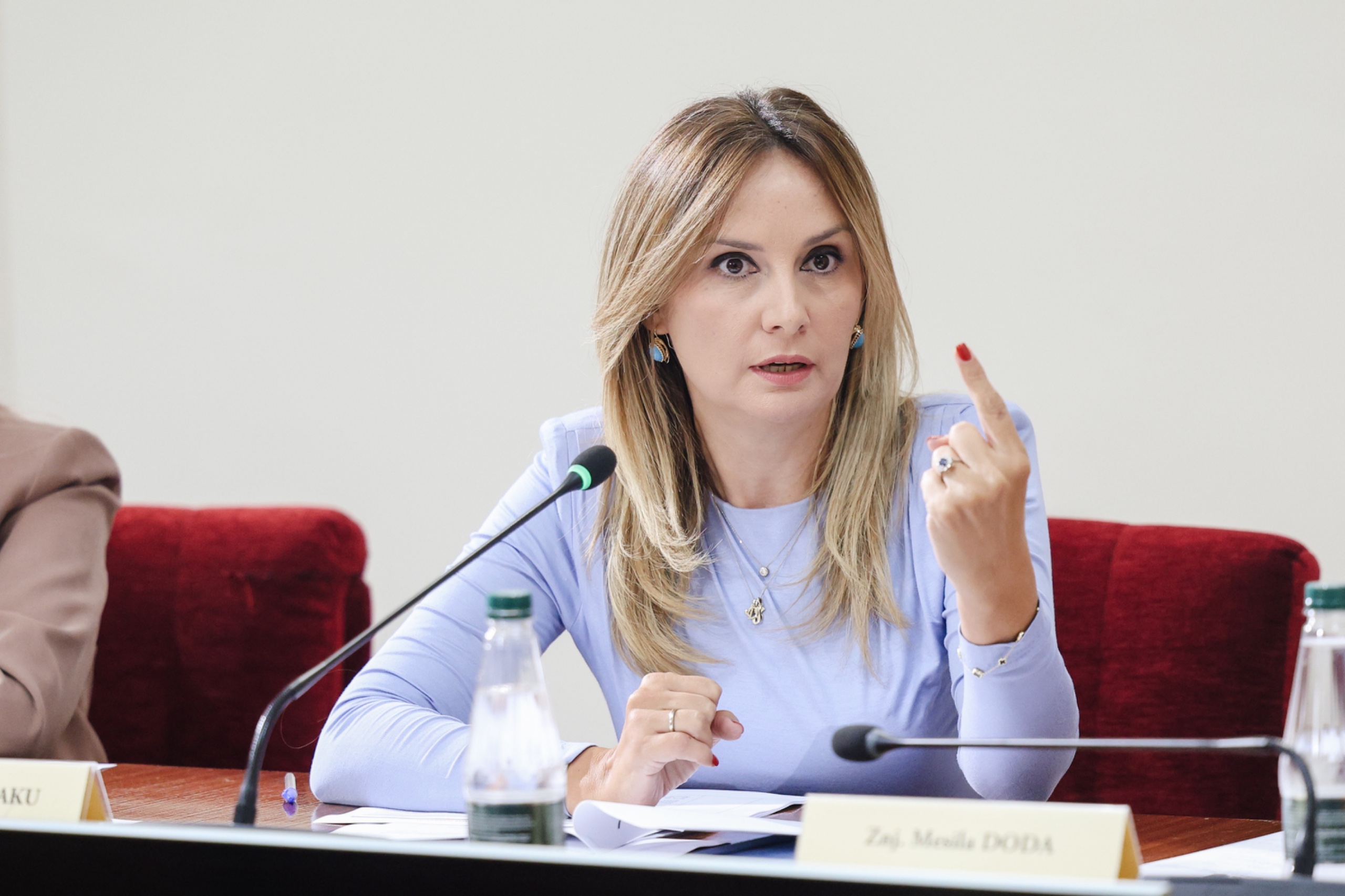Despite the outward positivity towards the Denmark-Kosovo prison transfer deal, a closer analysis reveals an ugly underbelly to the accord, raising numerous abuse and discrimination concerns.
Mohamed Hassan Abdi moved to Denmark from Somalia when he was four years old and lived there throughout his life, never once returning to Somalia following his emigration.
Throughout his life in Denmark, Abdi was imprisoned for two separate robberies that he committed when he was a minor, along with several drug possession charges. His most serious sentencing occurred on May 18, 2018, after he illegally carried a loaded weapon in a public place. The District Court of Viborg sentenced Abdi to a two year and nine month long imprisonment, along with deportation from Denmark if he violated his two-year probation. However, after Abdi appealed, the Western Denmark High Court, on October 31, 2018, reduced his prison sentence to two years and six months but also ruled for permanent expulsion from Denmark.
Abdi appealed on July 30, 2019 to the European Court of Human Rights, ECHR, arguing that he did not have any prior convictions that warranted expulsion, and had never been warned about expulsion before. Abdi claimed his right to privacy in his home life had been violated because he would be separated from his girlfriend should he be deported to a country he had not lived in since when he was four years old.
ECHR ruled in favor of Abdi, stating in an unanimous decision that “the expulsion of the applicant combined with a life-long ban on returning was disproportionate,” and that the decision was a violation of privacy rights.
Abdi is not the only foreigner who has received a Denmark court ruling of expulsion, a phenomenon that adds to the differentiation between native and foreign prisoners in the country. Critics claim that the discrimination against foreign prisoners in Denmark will increase even more with a rather Kafkaesque prisoner transfer deal with Kosovo, leading to frequent infractions of Abdi v. Denmark and violating multiple human rights statutes.
Kosovo’s Parliament ratified the deal on May 23, 2024, three years after it was introduced. The provisions involve 300 foreign prisoners being sent to Gjilan Prison to resolve Denmark’s overcrowding and prison guard shortage problems, while the Kosovo government will receive 210 million Euros over the next fifteen years, to be invested into prison upgrades and renewable energy.
This continues a trend of European countries exchanging prisoners for financial incentives, as similar agreements between the Netherlands with both Belgium and Norway occurred in the early 2010’s.
The deal has been endorsed by politicians in Kosovo and Denmark who claim it solves several issues for both countries. Shortly after the vote in the Kosovo Parliament, Peter Hummelgaard, the Minister of Justice of Denmark, issued a statement on Instagram, claiming that the deal “will ease the pressure on the Danish prisons.” Albulena Haxhiu, the Minister of Justice of Kosovo, wrote on Facebook on the same day that “this agreement is a proof of trust and mutual respect between our countries.”
Despite these endorsements, underlying problems continue to plague the deal’s integrity, as critics point out abuse and discrimination concerns, serving as evidence of neglected human rights, along with a frightening movement in Nordic countries looking to contain the influx of foreigners in their midst.

Illustration. Photo: Pixabay/ Fifaliana-joy
Discrimination Against Foreigners
The prisoners to be transferred in this landmark deal would be “adult person[s] upon whom a Danish prison sentence, including persons upon whom an expulsion order from Denmark, is imposed, and persons who are in custody pending enforcement of an expulsion order.” Put simply, foreigners are the main targets of the transfer deal.
Hummelgaard claimed in an Instagram post made in support of the deal that “criminal foreigners do not belong in Denmark.”
While Nordic prisons continue to gain acclaim for their rehabilitative form of imprisonment, they also fail to be wholly progressive when compared to punishment-based regimes. Nordic imprisonment, also known as ‘Nordic Penal Exceptionalism,’ is focused on maintaining normal living conditions behind bars, minimal security, and programs designed to acclimate prisoners into society when their sentence ends.
Nonetheless, there exists distinctions in treatment and punishment of those who commit crimes based on nationality. For example, foreigners who commit crimes in Norway are called ‘criminals,’ while native Norwegians are dubbed ‘offenders.’
Linda Kjær Minke, a professor at the Department of Law at the University of Southern Denmark and expert on prison cell renting, told BIRN that the deal is “crazy,” but that it allows Denmark to “get rid of some prisoners” that the country is unable to reintegrate. She also noted that the decision allows politicians to “show the population that they handled the problem,” by sending the prisoners away.
The Danish Prison Act outlines that “an inmate who is expelled from Denmark by judgment, cannot be employed in education, teaching or program activities unless certain circumstances speak for it,” which excludes foreign nationals from programs available to native Danish offenders.
Punitive theorists have noted the rise of similar, duplicitous behavior in all Nordic penal regimes over the last decade, known as bordered penal populism. It is characterized by a two-faced approach to prisoner care: humane, progressive treatment towards native prisoners, alongside exclusion, maltreatment, and discrimination against foreign prisoners.
Norwegian penal scholar John Todd-Kvam told BIRN that bordered penal populism is the idea of punishment regimes that essentially warehouses people, meaning “people just being kept there… and not [being] given sufficient opportunities for activity, education, [and] training.” Other elements include swift justice, focus on petty offenders, and threats of both deportation and imprisonment.
“Inmates in the foreign nationals’ prison [Kongsvinger, Norway] will be deported after imprisonment, and it is natural that they receive different provisions than other inmates,” former Norwegian Minister of Justice and current Progress Party member Anders Anundsen, said on December 3, 2013 when discussing the treatment that foreign prisoners receive when compared to Norwegian prisoners, using nationality as a justification for discrimination.
Todd-Kvam told BIRN that even with the ending of the Progress Party’s control of the Norwegian Ministry of Justice in 2020, “the practices haven’t changed that much…they don’t rent the prison in the Netherlands anymore, but the practices of deportation and so on are still there.”
The Dutch-Norwegian prison transfer deal was similar in nature to the Kosovo-Danish one, although the clause providing for the transfer of only imprisoned foreign nationals was negated because of its discriminatory nature. Nonetheless, in an August 2017 report on the Netherlands-Norway deal done by a team of independent researchers found that 79 percent, or 178 out of the 224 total prisoners held at Norgerhaven, the Norwegian prison in the Netherlands, were either naturalized Norwegians or foreign residents.
The Nordic penal discrimination trend has evolved from subtle, exercised in the Netherlands-Norway deal, to overt discrimination with the Denmark-Kosovo deal, with an exclusive focus on foreign prisoners. Professor Kjær Minke asserted that “the explicit policy of selecting deportable foreign national prisoners for transfer in the Danish case is less anomalous than both the rhetoric and aims of previous cases.”

Danish officials observe Kosovo prison conditions during a visit in October 2020. Photo: Kosovo Correctional Service
Conditions of Kosovo Prisons
Kosovo’s prisons have improved on their standard of care since the country’s declaration of independence from Serbia in 2008, but guard abuse remains a primary concern for human rights groups, with the UN Committee Against Torture opposing the deal.
“We have concerns about effective monitoring and oversight of the intended use of an extraterritorial detention centre in Kosovo, as well as with jurisdictional ambiguities, which can affect the guarantee of human rights-compliant conditions of detention,” Elizabeth Throssell, a representative from the UN Human Rights Office who works on prevention of torture, told BIRN.
A 2021 report by the European Committee for the Prevention of Torture and Inhuman or Degrading Treatment or Punishment, CPT, corroborates these worries, reporting several cases of physical and verbal abuse towards inmates reported from Dubrava and High Security Prisons, and more isolated incidents in Mitrovica and Pristina detention centres, including credible allegations of “physical ill-treatment,” at Dubrava and High Security Prisons, “kicks and punches from custodial staff,” at Mitrovica Detention Center, and “excessive use of force,” at Prishtina Detention Center.
The Prishtina-based NGO Kosovo Rehabilitation Center for Torture Victims, KRCT, corroborated the CPT’s concerns in their 2023 Prison Monitoring Report, noting “they had received allegations of the use of force against prisoners. ”
The CPT also received claims from prisoners at Dubrava that “corruption involving custodial staff persisted in the establishment and that there appeared to be a widespread belief that many things could be bought, such as illicit drugs, mobile phones and preferential treatment.”
Fatmire Haliti, a lawyer at KRCT and the author of the yearly KRCT Prison Monitoring Report, told BIRN that “there’s been some progress in regard of fighting smuggling,” since the CPT’s report, but there were still “cases of contraband and smuggling,” at Gjilan.
The agreement addresses these issues by stating “the cooperation between the Sending State [Denmark] and the Receiving State [Kosovo], may…include education and training, [and] exchange of best practices and experiences.”
Haliti also notes that she is concerned with the ability of Kosovar guards to adapt to the wholly different Scandinavian penal system, telling BIRN that the penal systems between the two nations are “like two parallel systems with one another.”
Todd-Kvam told BIRN that “replicating [the Scandinavian penal system], in a country that maybe operates in a completely different way, that has their own prison healthcare system, or their own prison school, it’s really difficult,” corroborating Haliti’s concerns.
BIRN contacted the Danish and Kosovar Ministry of Justice on the issue of potential human rights violations in Gjilan Prison, but did not receive a response by the time of publication.

Illustration. An interior view of a cell in Skien prison, some 130 km south west of Oslo, Norway, February 12, 2016. Photo: EPA/CORNELIUS POPPE NORWAY OUT
A Problematic Precedent
The Kosovo-Denmark agreement continues the precedent of ineffective prisoner transfers, amplified by the abuse and corruption concerns seen within Kosovar prisons.
Previous European iterations of the prisoner exchange include the 2009 ‘Nova Belgica’ agreement between Belgium and the Netherlands, which sent 681 total convicts from Belgian prisons to Tilburg Prison. This deal was struck to manage overcrowding in Belgian prisons, with the Netherlands receiving an annual payout of 20 million Euros, lasting until 2016.
Scandinavian countries employ a tactic to prevent overcrowding called a prison queue, with convicted prisoners being able to live an ordinary life until their sentence begins. Norway saw a dramatic prison queue increase in 2013, which compounded concerns about undelivered justice. A resolution was agreed upon in 2014, as Norway shipped 650 total prisoners to Norgerhaven Prison, while the Netherlands gained 25.5 Million Euros annually for their cooperation, ending in 2018.
These agreements have come under fire for their effectiveness, as Professor Kjær Minke states “the experiences of Belgium and Norway strongly suggest that renting prison cells can only serve as a short-term solution.” Research from the CPT substantiates Kjær Minke’s assertion, as their 2022 visits to Belgian prisons confirmed that “overcrowding is still a major (and longstanding) problem affecting the entire Belgian prison system.”
The deal between Denmark and Kosovo is not only discriminatory, but proven to be ineffective in permanently solving overcrowding. The transfer’s future effectiveness remains to be seen, but the trend of discrimination against foreigners in Nordic prisons, abuse and corruption concerns in Kosovo’s prisons, and the ineffectiveness of past prison transfer agreements call into question whether it will be worth it at all.
Please enable JavaScript to view the comments powered by Disqus.


